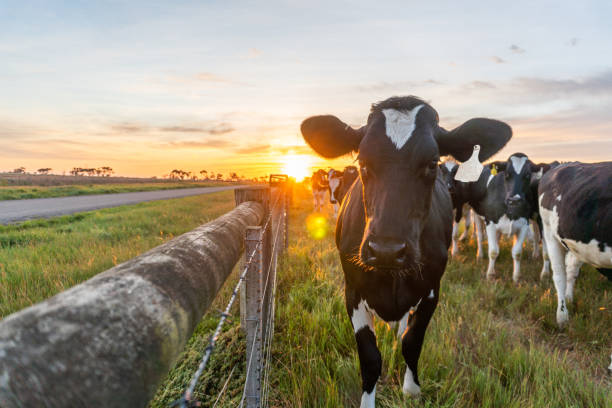
By: Erastus Ngaruka, Technical Advisor: Livestock & Rangeland Management
Agricultural production in Namibia is highly susceptible to the effects of climate change and ultimately threatens food security and sustainable livelihoods. This vulnerability can however be reduced through the adoption of appropriate farming systems that foster sustainable agriculture. To this end, sustainable agriculture entails the continued production of food under appropriate farming practices that will not compromise the production environment. An integrated farming system is one such system that exemplifies sustainable agriculture.
An Integrated Farming System (IFS) entails the practice of farming with both crops and livestock on the farm such that the enterprises complement each other in terms of resource utilization, and the farm has diversified sources of income. Common IFS include a combination of; crops (e.g. cereal, fruits, vegetables etc.), chickens, cattle, goats and sheep. Each of the components will have a role to supply and receive an input resource for the system to function efficiently. This simply means, a waste material from one component is an input resource for another.
For example, the role of livestock in the system is to supply manure as fertilizer for crops. Livestock dung/manure can be collected from the kraal or the livestock can be allowed onto the fields to eat crop residues while dropping manure onto the soil. Moreover, livestock trample or incorporate litter materials (e.g. dead leaves) with their
hoofs into the soil to improve soil organic matter content. In addition, livestock also break the soil surface layer to facilitate water infiltration. Furthermore, livestock can also be used for ploughing crop fields.
On the other hand, crop (e.g., Maize, Mahangu) residues can be used as livestock feed. These can be collected and processed (milled) to improve digestibility. Commonly, farmers allow animals to eat crop residues while standing in the field. The crop or plant materials are also used to cover the soil surface (mulching) to minimize excessive water loss (evaporation) from the soil, and as compost to improve soil humus or organic matter to enhance soil fertility and stability. Furthermore, poultry (e.g. chickens, ducks) can be used as cleaners in orchards or vegetable gardens,
removing rotten fruits, vegetables, pests, and weeds, while adding manure/fertilizer to
the soil.
Ultimately, an Integrated Farming System does not merely entail the rearing of animals and growing crops but constitutes a comprehensive system that includes sustainable resource utilization such as soil and water conservation which is key to a healthy system. When compared to the common monoculture practices (single product farming), IFS is an important tool to minimize farm production costs and associated risks. The advantages of IFS include; increased farm production and income with limited inputs, recycling of farm by-products, and use of organic materials amongst others.
To this end, IFS can increase farmers’ resilience to the adverse effects associated with climate change or minimize losses brought about by drought, disease outbreaks, and pest attacks amongst others.










